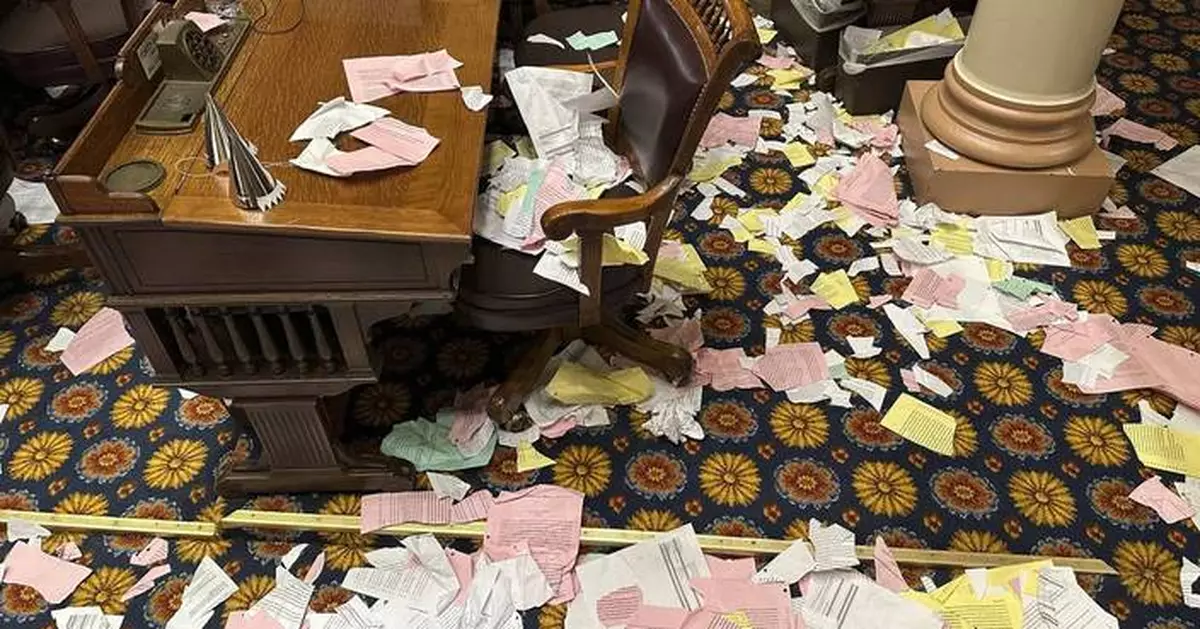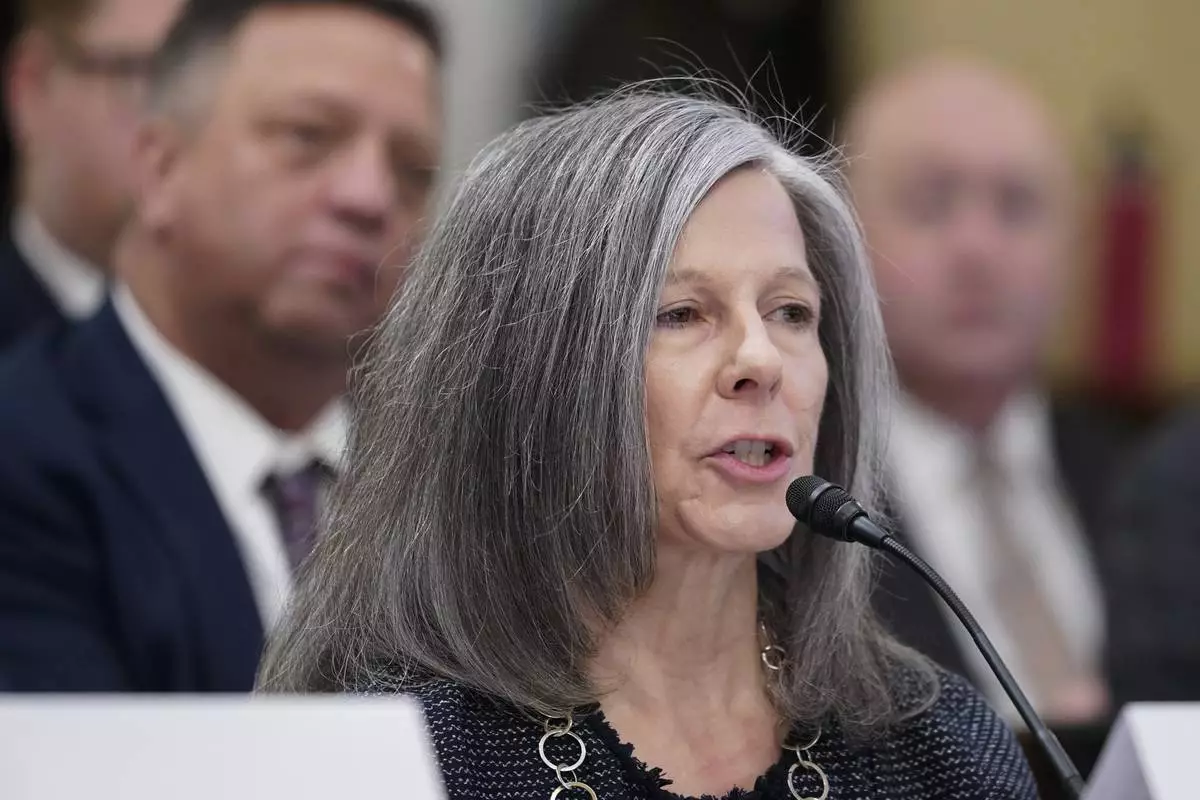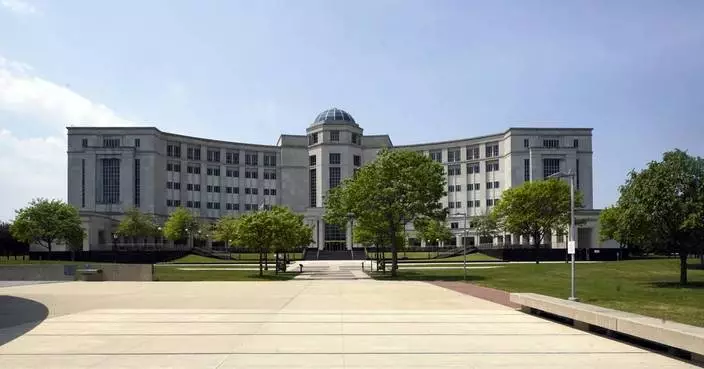ATLANTA (AP) — Here’s how a Georgia legislative session is supposed to end:
After a last-minute rush of negotiations, lawmakers jam through final agreements on a few more bills as the clock ticks past midnight.
Legislative staffers crowd into chambers as leaders thank employees against a soundtrack of paper being ripped into pieces.
Finally, the presiding officer recognizes the climactic motion to adjourn “sine die,” a Latin phrase that means to leave without a day to return.
Then everyone tosses shredded paper into the air and cheers.
Friday, though, Georgia’s state Senate just left.
The motion to adjourn by Republican Senate Majority Leader Steve Gooch of Dahlonega came shortly after 9 p.m. with none of the usual buildup. There was no thanks to the staff. Senators hadn’t even torn up much paper.
Georgia lawmakers can pick up bills in 2026 where they left off Friday, the second year of a two-year session, but they left plenty on the table.
Among items that didn’t pass were proposals to force Georgia to leave a multistate election group, a push by Jones to establish more legislative control over rules enacted by state agencies, an effort to ban diversity programs in public schools and colleges and a bill to let people sue local governments for not cooperating with federal immigration officials.
The sudden departure came after it became increasingly clear some Senate measures were languishing in the House and that Senate leaders had lost their appetite to bargain. It was possible to leave early because lawmakers had already agreed on a budget and other highest-priority legislation including tax cuts, a school safety bill, new limits on lawsuits and banning transgender girls and women from participating in women’s sports.
The collision was reminiscent of the 2023 legislative session, the first year Burns and Jones led their chambers. Many big issues didn’t pass after the chambers got into a standoff over the budget and licensing rules for hospitals. Then, it appeared Jones was trying to force his will on the House, a reversal of the traditional dynamic in Georgia, where the House has often had its way.
Ultimately, many issues derailed in 2023 ended up passing in 2024, including loosening hospital permitting requirements, imposing basic protections for renters and creating a voucher program to pay for private school and home-schooling.
As senators cheered their departure Friday, veteran state Rep. Alan Powell was at the microphone in the House proposing changes to a hotly debated bill to regulate automated speed detection cameras in school zones.
Suddenly, there was no reason for the Hartwell Republican to continue, as there were no senators left to agree to amendments.
Republican House Speaker Jon Burns of Newington and his staff exchanged bewildered glances as House lawmakers murmured.
“It appears that the Senate has checked all their priorities, all their political priorities, and decided to end their night early instead of finishing their work on behalf of the people we represent,” Burns told the House. “Of course, they’re free to do as they please, but this chamber puts policy over politics."
Many longtime lawmakers were baffled. House Rules Committee Chairman Butch Parrish, a Swainsboro Republican who has served since the 1980s, said senators “broke new ground.”
Representatives approved a few more bills that didn't need further Senate action, and then also went home early.
Jones downplayed any conflict.
“What do you mean what happened?” Jones said afterward. “We ended session.”
Jones said senators had achieved their goals and he had been bucking for an early adjournment all day.
“We got a lot of things done,” he said. “And so there was no need to stay here until midnight.”
Some minority Democrats were ecstatic because bills they opposed didn't become law. “Victory!” shouted Atlanta Democrat Shea Roberts as she left the Capitol.
“The reality is that a lot of this session was spent on political messaging bills and on politics instead of focusing on Georgian families,” said state Sen. Jason Esteves, an Atlanta Democrat considering a run for governor in 2026.
Both Jones and Burns said there are no hard feelings over how things ended Friday, although Burns said he would have liked to clinch an agreement on school zone speed cameras.
House Majority Whip James Burchett, a Waycross Republican, said that while House members may have held off on passing Senate proposals to “fully vet” them, the chambers have no choice but to work together.
“The Senate needs the House and the House needs the Senate,” Burchett said. "It would do no good if anyone were to hold some sort of grudge for this."
—-
This story corrects that James Burchett is from Waycross, not Valdosta.
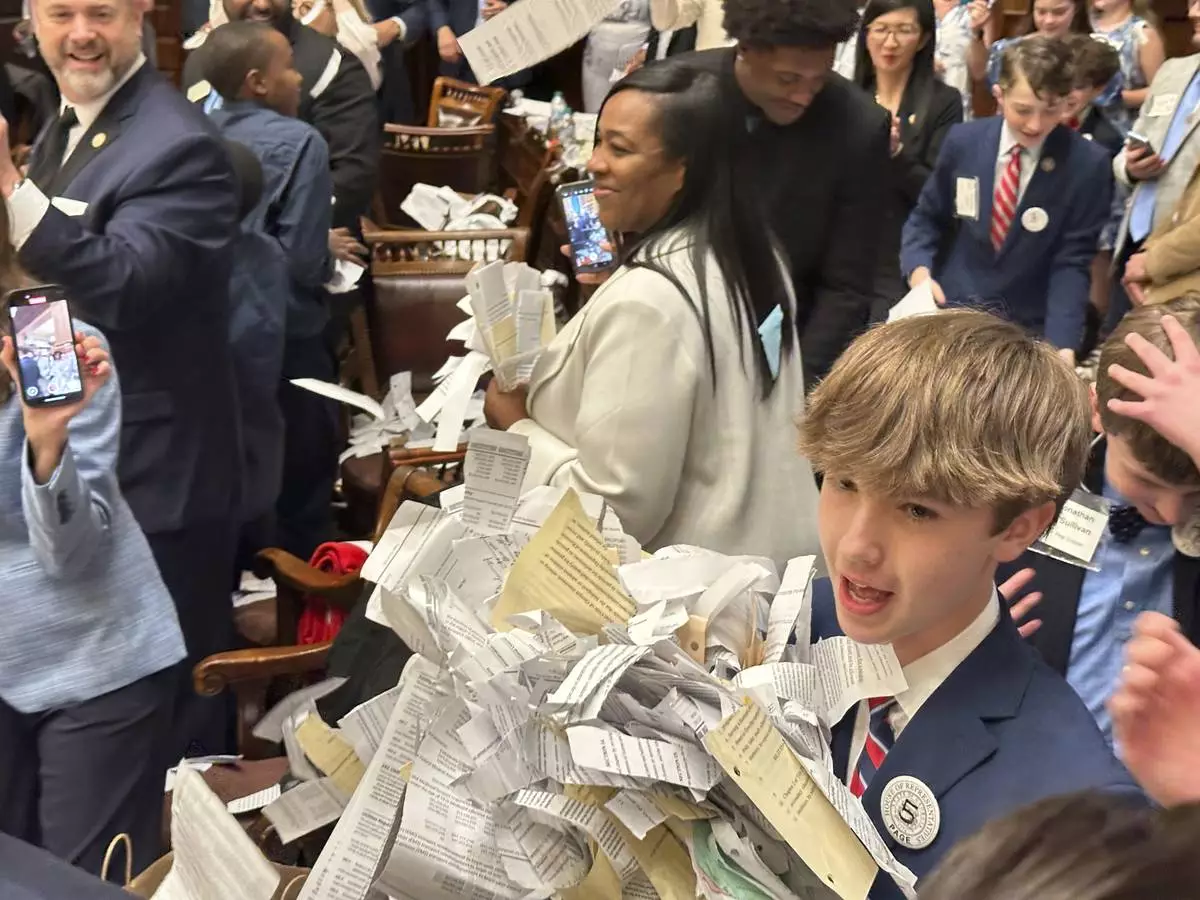
A teenaged page carries paper to toss into the air to celebrate the end of the 2025 legislative session on Friday, April 4, 2025 at the state Capitol in Atlanta. (AP Photo/Jeff Amy)

Georgia House members toss paper into the air to celebrate the end of the 2025 legislative session on Friday, April 4, 2025 at the state Capitol in Atlanta. (AP Photo/Jeff Amy)
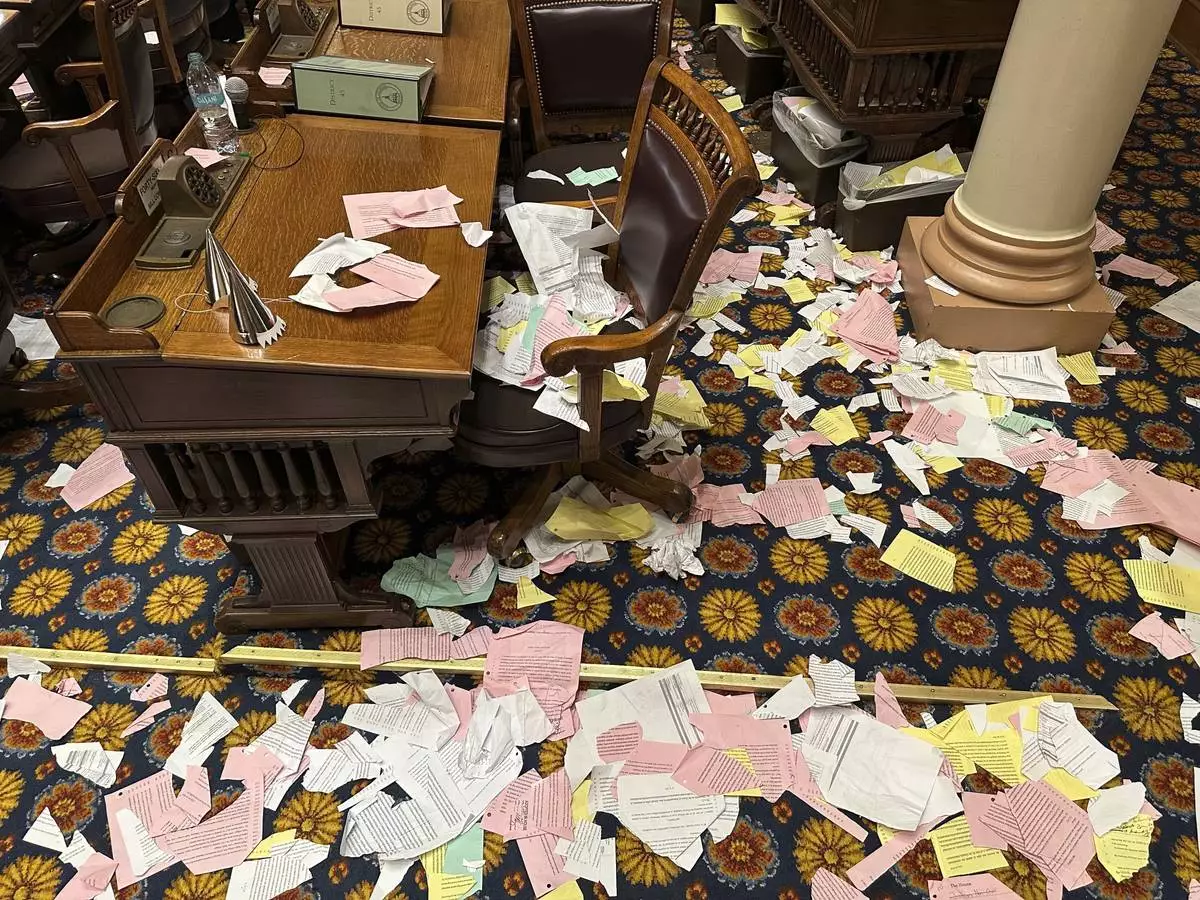
Paper lies strewn in the Georgia Senate chamber after lawmakers tossed it into the air to celebrate the end of the 2025 legislative session on Friday, April 4, 2025 at the state Capitol in Atlanta. (AP Photo/Jeff Amy)


